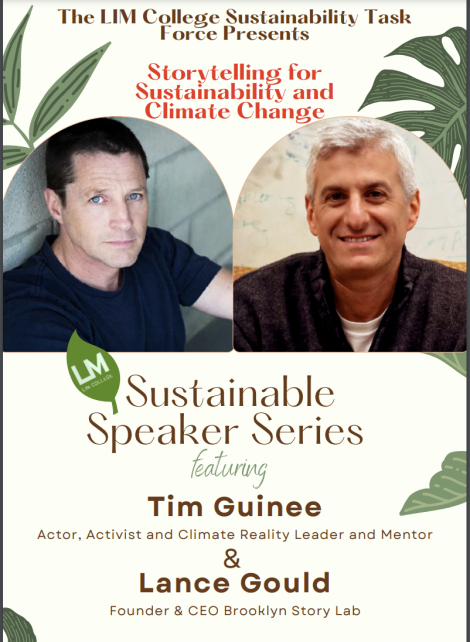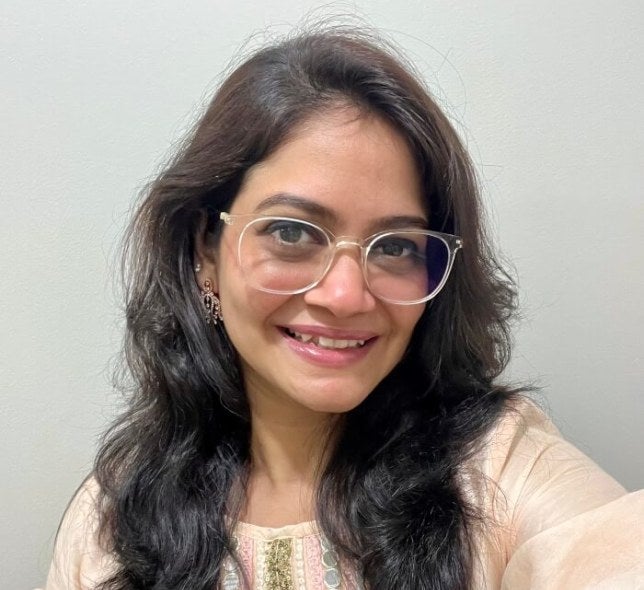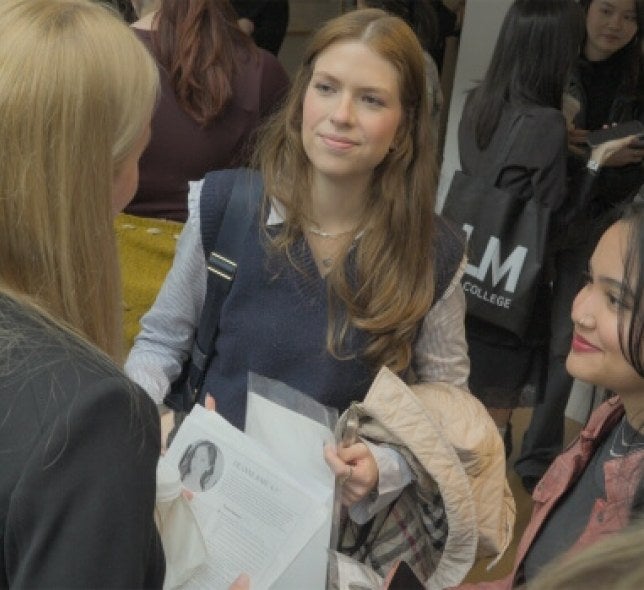Stern and Gould, who both had illustrious careers in journalism before starting the Lab, spoke to the ability of stories to cut through noise and connect with people. After all, climate science is often debated, but the impact of our own experiences is unimpeachable. They explain that telling a story allows the speaker to convey the message of the imminent threat of the climate crisis, without pushing information that can alienate audiences. By showing people why climate change initiatives and action are needed, you inspire people at a granular level that is meaningful and stays with them. The conversation can then move to the proactive side of climate threat.
Guinee, who students might be familiar with from the Netflix hit Inventing Anna, shared an old Hebrew story told to him by a rabbi, of a traveler who comes across a house engulfed in flames. He uses this story to show our own shortsightedness to often look at a fire in the distance and acknowledge the danger, but ignore the threat because it doesn’t affect us yet. The proverb poses the question of what we individually can do to see past the dread and take advantage of opportunities to catalyze change.
The three guest speakers promoted the narrative that we have more in common with one another than we think, and storytelling is a universal language that can uniquely grab our attention. However, that is not to say that data does not have a valued place in the stories we tell. It was mentioned that the IPCC report shows half the world’s population lives with water scarcity at different points throughout the year, and currently there are over 13 million climate refugees, and the number is growing! However, a roadmap to recovery is possible by 2030 through the Sustainable Development Goals.
A parting piece of advice delivered to anyone unsure of how to be a champion for a brighter future was to embrace vulnerability. Speakers spoke to the fact that for most people bringing new ideas or thought processes upfront to a new audience shows care and intentionality. On the topic of sustainability and storytelling, it was apropos to end with the closing line Guinee shared from the poem The Wind, One Brilliant Day by Antonio Machado “What have you done with the garden that was entrusted to you?"




